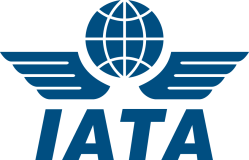Services for Aviation
Scope
WMO and the International Civil Aviation Organization (ICAO) coordinate closely in the establishment of international standards, recommended practices, procedures and guidance that enable WMO Members and ICAO Contracting States to fulfil their obligations in the delivery of meteorological and climatological services to aviation users worldwide. WMO and ICAO have held formal working arrangements since 1954, which specify the roles and responsibilities of each organization to ensure efficiency and avoid duplication.
The Services for Aviation activity area of WMO coordinates aeronautical meteorology-related activities and outputs and maintains an effective liaison with ICAO and other international partners such as the International Air Transport Association (IATA), International Federation of Air Line Pilots’ Associations (IFALPA) and International Union of Geodesy and Geophysics (IUGG). Such coordination ensures the optimal development of scientific and technical methods and practices for the provision of meteorological and climatological services, nationally and multi-nationally, based on identified user requirements and state-of-art capabilities. This coordination work covers, for example:
- the establishment of basic meteorological networks and facilities required for effective provision of meteorological service to international air navigation;
- the setting of standards on aeronautical climatological information;
- the defining of qualification and competency standards for aeronautical meteorological personnel;
- the advancement of science and technology in support of growing demand for interoperable, fit-for-purpose, high quality information and services by the aviation industry; and
- the development of guidance on quality management systems and fair, equitable and transparent cost recovery mechanisms for the provision of sustainable, high quality aeronautical meteorological services.
WMO also liaises with ICAO and other international partners on efforts to mitigate the impact of climate change and extreme weather events on aviation operations and infrastructure as well as efforts to reduce aviation’s impact on the environment.
The Services for Aviation activity area also assists in the supply of targeted capacity development and outreach to Members and their aeronautical meteorological services, particularly those in developing countries, least developed countries and small island developing States, to build capacity and capability, thereby helping them to fulfil their national and international obligations. Such assistance often entails the conducting of in-person or online workshops as well as facilitating the establishment of bilateral or multilateral arrangements domestically or between countries.
Objectives
The Services for Aviation activity area ensures effective coordination within WMO in responding to recommendations or requests arising from intergovernmental sessions and non-governmental meetings, including WMO’s Services Commission and Standing Committee on Services for Aviation and ICAO’s Meteorology Panel.
In this connection, WMO expertise provides input to the establishment and maintenance of the meteorological and other environmental components of ICAO’s Global Air Navigation Plan (GANP) and its aviation system block upgrades (ASBU) methodology. The GANP and ASBU methodology cover a broad spectrum of institutional, regulatory, technological and operational aspects enabling performance improvements within the aviation sector in support of a “One Sky” global air traffic management (ATM) concept through to the 2030s and beyond.
Among these GANP/ASBU aspects are the integration of meteorological and climatological information into a system-wide information management environment of global ATM, the enhancement of existing international facilities and services including the world area forecast system, the international airways volcano watch, the tropical cyclone watch and the space weather information service, and the development of a new generation of interoperable facilities and services to support safe, effective and efficient ATM and trajectory-based flight operations in the coming years and decades.
Mitigating the impact of climate change and extreme weather events on aviation as well as reducing aviation’s impact on the environment are supplementary areas where WMO expertise is providing advice to ICAO and others concerned.
Structure
In 2020, a Standing Committee on Services for Aviation (SC-AVI) was established by WMO’s Commission for Weather, Climate, Hydrological, Marine and Related Environmental Services and Applications (SERCOM). Taking inspiration from its predecessor, the Commission for Aeronautical Meteorology (CAeM), the Standing Committee currently represents WMO’s leading scientific and technical body dealing with aeronautical meteorology and the supply and enhancement of meteorological and climatological services for aviation.
SC-AVI comprises approximately 15 world-leading experts from across all six WMO regional associations – RA I (Africa), RA II (Asia), RA III (South America), RA IV (North America, Central America and the Caribbean), RA V (South-West Pacific) and RA VI (Europe). The International Civil Aviation Organization (ICAO) is also represented on SC-AVI.
SC-AVI convenes meetings typically once every two years and reports directly to SERCOM. During the intersession period, the oversight of SC-AVI’s work is managed and maintained via quarterly conference calls and regular electronic correspondence.
SC-AVI comprises several subsidiary bodies, including expert teams. The subsidiary bodies progress work and deliver outputs in specific fields of competence, such as education and training, weather and climate science, and volcanic science. Each subsidiary body typically comprises between 8 and 12 experts from around the world.
SC-AVI and its subsidiary bodies ensure cross-coordination with other WMO bodies whenever required, thereby helping to ensure mutual collaboration and avoid duplication.
The work of SC-AVI and its subsidiary bodies is supported by the aviation wmo [dot] int (Secretariat of the Services for Aviation Division), part of WMO’s Services Department.
wmo [dot] int (Secretariat of the Services for Aviation Division), part of WMO’s Services Department.




